| Three children on a camping trip in Kenya meet another two little girls on the banks of a river. Mixing friendship and competition, as well as an unacknowledged rage, they devise a game that ends with a scream. The mothers come running and, while it might not be entirely clear how the tragedy occurred, one mother is adamant that her boys, Nick and Luke, along with Katie, the daughter of her best friend, must guard the shocking secret from the world. Thirty years later, Nick and Katie meet again back in Dublin, following Luke’s sudden disappearance. Over the next few weeks, they’re forced to confront their memories of their childhood trauma, and the damage the cover-up has caused. |
Welcome
I started this blog in 2013 to share my reflections on reading, writing and psychology, along with my journey to become a published novelist. I soon graduated to about twenty book reviews a month and a weekly 99-word story. Ten years later, I've transferred my writing / publication updates to my new website but will continue here with occasional reviews and flash fiction pieces, and maybe the odd personal post.
|
4 Comments
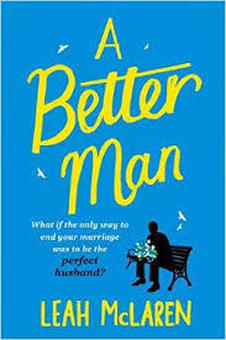 Following the birth of their twins three years ago, Nick and Maya have grown apart. Having given up her job as a highflying divorce lawyer to devote herself to the children, Maya is becoming increasingly insecure, looking to her therapist, the children’s nanny, her personal trainer and self-help books for “the answer”, when what she really wants is her husband’s attention. But Nick, an advertising director, has come to the conclusion it’s time to leave. Confiding in the couple’s mutual friend, Adam Gray, he realises that, with Maya now a stay-at-home mum, he’ll be heavily penalised financially in the divorce settlement. Unless he can play at being a better man, spending more time with his children and encouraging his wife back to work. 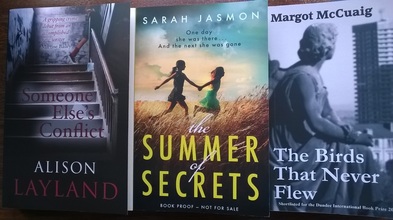 There’s no denying that, with my preoccupation with launching a certain novel, I’ve been neglecting my reading of others’ words of late. But I have been doing some reading over the past month, but writing posts for my epic blog tour has taken precedence over writing my reviews. Much as I might berate myself for not paying it forward and matching the eloquence and depth of so many of the reviews of Sugar and Snails, I’ve decided that mini reviews of these three debut novels will have to suffice. They’re summarised here, not in order of preference, but in the order I read them.  Back in the day when I worked with people who had psychotic experiences, it could be something of a challenge to distinguish fact from fiction in the stories they told me about their lives. Now and then I’d find myself wondering what if their seemingly incredible account were actually true? I was reminded of this on reading the latest novel for the Curtis Brown Book Group. Steven Strauss, twenty-something PA to the charismatic (and now deposed) founder of Resolute Aviation, Raymond Ess, is on a business trip to India with his boss. Since the company’s decline due to the collapse of a prestigious deal, Ess has been on sabbatical, or possibly sick leave. Returning to work with renewed vigour, Ess has a grandiose plan to rescue the company through the purchase of a remarkable invention he came across by chance when lost in rural India. Of course Steven doesn’t believe in the antigravity machine, but he’s persuaded to accompany his boss on his quest to find it in order to keep Ess out of the way while Resolute Aviation goes into receivership. What happens makes Steven – and we, the readers – question the boundary between madness and sanity. In the absence of gravity, what would keep us grounded to the real?  Lulu Davenport is the proprietor of Los Rocques, a clifftop hotel on the Mediterranean island of Mallorca, frequented by a certain type wealthy Brit who holds themselves aloof from the package-tour hordes. It’s also a popular hangout for the teenagers who spend their summers on the island, roaming freely after months of more orderly education abroad. For almost sixty years, Gerald Rutledge has lived in a small house just a kilometre away from The Rocks (as everyone calls it), but he’s rarely set foot on the premises. It’s not just because, having married a local woman and made his living from the land, he’s more assimilated into the Spanish community, but also because he’s persona non grata to Lulu following their brief and calamitous marriage only a few years after the end of the Second World War. 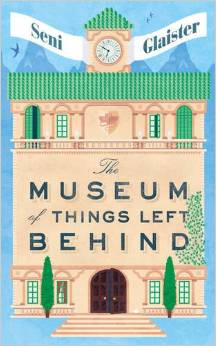 Sergio Scorpioni is the president of Vallerosa, a tiny land-locked country of rich red earth and steep ravines. With polling day imminent, Sergio is nervous, despite the fact that, in an elected dictatorship in which every job from postman to government minister is passed from father to son, his re-election is more or less confirmed. Lizzie Holmesworth is a well-meaning middle-class British student, keen to undertake some voluntary work with those less fortunate than herself as part of the Duke of Edinburgh’s award scheme. Arriving in Vallerosa on the overnight freight train – the country’s primary communication channel with the rest of Europe – Lizzie is overwhelmed by the beauty of her surroundings and the warmth of her welcome. What she doesn’t realise until much later is that the letter that preceded her, mentioning the Duke of Edinburgh’s award and bearing the image of Queen Elizabeth II on its stamp, has led them to expect a royal visitor who will endorse the government’s legitimately at this uncertain time. Reluctantly, she agrees to the president’s request that she continue with the pretence although, the more she learns about the country, the more she’s taken with the peacefulness of the lifestyle and the less she feels she has to offer.  It’s 2008, and the financial crisis signals the death throes of New Labour; what’s the millionaire head of a publishing dynasty to do, but throw a party? Sherard Howe’s proclivity to entertain enables author Tim Glencross to assemble a wide cast of characters under one roof whose love and work trajectories the reader follows over the ensuing three years. While Philip Devereux, partner at a prestigious law firm that “advised the banks while they were getting into a mess, and now … [advises] them on how to finish themselves off” (p143), commissions his former fag (a word whose meaning I did know, but wish I didn’t), Sherard to curate a modern art exhibition on the theme of the crisis, fittingly entitled Turmoil, and the minister, Alec Merton, escapes a tedious family Christmas to defend the government to the news media, Sherard’s wife, the feminist philosopher Daphne Depree, is having second thoughts about the pending publication of her book, The Prodigal Sister, a “virtuosic deconstruction of third-way politics” (p121). 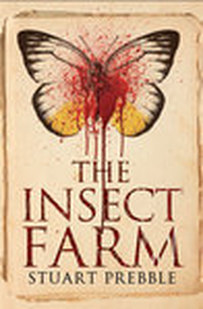 When his parents die in a house fire, Jonathan Maguire decides to give up his studies at Newcastle University and move back to London to live with his brother. Six years older but with the mind of an eight-year-old, Roger has little understanding of the workings of the social world, but is an expert on the community of insects he breeds in glass-fronted cages in a garden shed. Despite their age difference, the boys were extremely close as children and Jonathan is determined to do the right thing by his brother, but his loyalty comes at a cost. Not only does he give up his degree, but it means separation from his girlfriend, Harriet, a talented flautist much admired by young men. Their marriage, just before Harriet returns to university after the summer break, does little to assuage Jonathan’s suspiciousness and jealousy, especially when she is the only woman in a classical quartet that includes his nemesis, Brendan Harcourt, who has never attempted to hide his attraction to Harriet. With Harriet’s support, and the occasional fiery confrontation, Jonathan seems to be learning to manage his emotions, when Roger reveals witnessing an illicit kiss after a performance by the quartet. 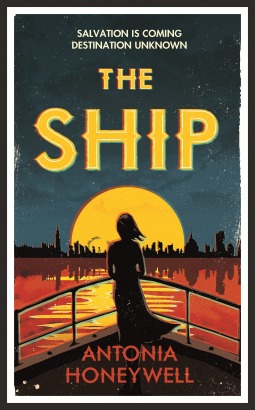 Born “at the end of the world”, Lalla has led a sheltered life, protected by her father’s wealth and her mother’s constant vigilance from the worst extremities of post-apocalyptic London. Although deprived by today’s standards, relative to the conditions of the stateless squatters in the British Museum, which she visits with her mother every day in lieu of school, she lives in luxury, with locks on the door of their flat and the prospect of tinned peaches for her birthday dinner. Her father, Michael, visits intermittently, spending most of his time procuring goods that will stock the ship he has purchased for her salvation and that of another 500 worthy souls. On her sixteenth birthday, after Lalla’s mother is fatally wounded by a shot through the window of their flat, Michael takes his daughter to set sail for a better life. Initially, Lalla’s unhappiness is attributed to her grief at her mother’s death, exacerbated by her father’s insistence that those on board should renounce all ties to the past. Even her developing passion for football-coach Tom cannot prevent her unease at what is happening. The other passengers, selected on the basis of their generosity to others or resistance to the military regime, see Michael as a Messiah figure and are increasingly frustrated by his daughter’s apparent rejection of his largesse. |
entertaining fiction about identity, mental health and social justice
Annecdotal is where real life brushes up against the fictional.
Annecdotist is the blogging persona of Anne Goodwin:
reader, writer, slug-slayer, tramper of moors, recovering psychologist, struggling soprano, author of three fiction books. LATEST POSTS HERE
I don't post to a schedule, but average around ten reviews a month (see here for an alphabetical list), some linked to a weekly flash fiction, plus posts on my WIPs and published books. Your comments are welcome any time any where. Get new posts direct to your inbox ...
or click here …
Popular posts
Categories/Tags
All
Archives
March 2024
BLOGGING COMMUNITIES
|
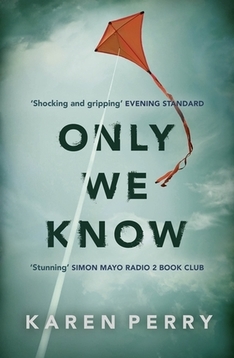





















 RSS Feed
RSS Feed





















